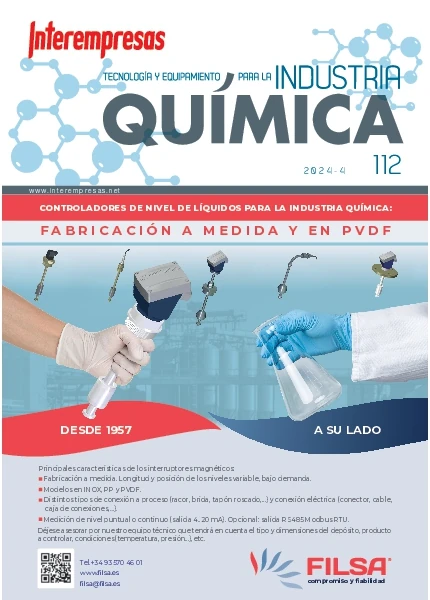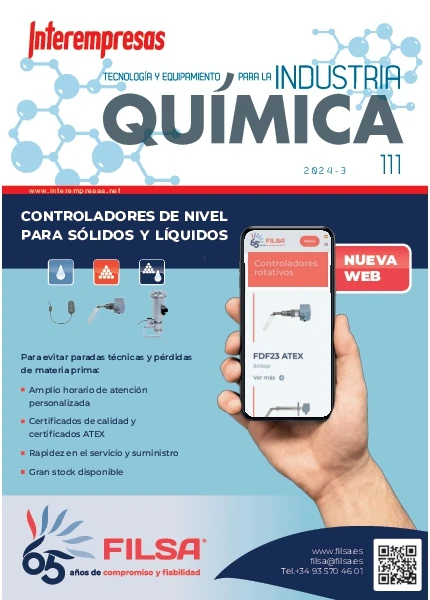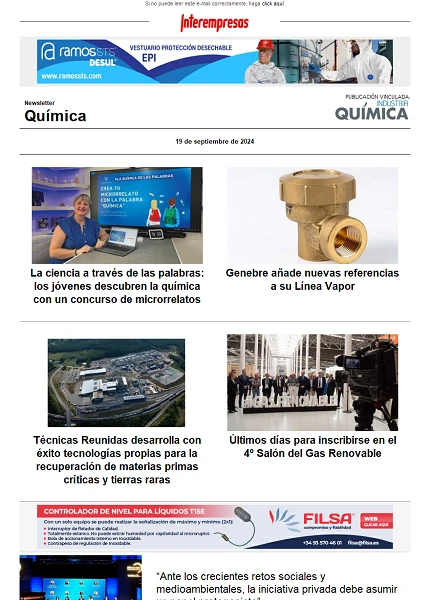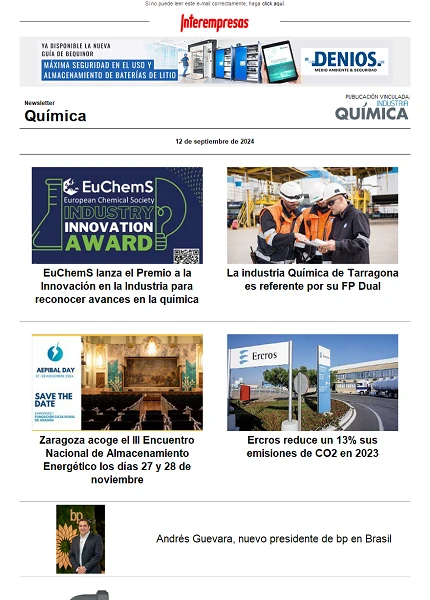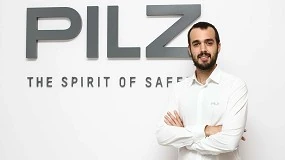This news article was originally written in Spanish. It has been automatically translated for your convenience. Reasonable efforts have been made to provide an accurate translation, however, no automated translation is perfect nor is it intended to replace a human translator. The original article in Spanish can be viewed at
La Unión Europea aprueba el ReachAre excluded from the obligation to register to the cement, but not fried ceramics, as requested by Spain
European Union approves the Reach
The Ministers of industry of 25 adopted on 13 December the new registration of substances chemical "Reach", which will force companies to assess the risks of 30,000 products whose effects on the health and the environment are unknown.
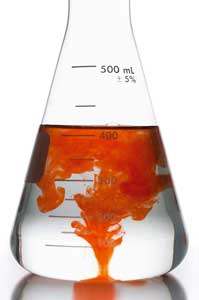
After years of discussions and conflicting positions, Reach has been adopted. Ahead of schedule, the Ministers of industry of 25 adopted the new registration of chemicals "reach", which will force companies to assess the risks of 30,000 products whose effects on health and the environment are not known.
The burden of proof will be on in the industry, which will have to demonstrate that the substances that it manufactures are not dangerous to commercialize them.
Both the Commission and the majority of Member States stressed that it is a "balanced compromise" between the protection of health and the environment and the need to maintain the competitiveness of European industry.
The Vice-President of the Executive community and responsible for industry and company, Gunter Verheugen, said that the new legislation will affect directly to 27,000 companies and indirectly to many more. Of these, 96 per cent are small and medium-sized enterprises, and Verheugen is why welcomed the changes made to reduce costs during the processing of Reach.
The adoption of the register has been qualified by the person responsible for environment, Stavros Dimas, a "great success" "for the health of citizens and the environment." The new legislation, said, will reduce the incidence of infertility, cancer, diseases of the skin or neurological disorders.
Reduction of requirements
Prior to the registration information requirements take into account the potential for risk and not only the quantity produced. Thus, for the substances produced between 1 and 10 tonnes per year, increase information requirements on those that are known to be carcinogenic or have another type of risks to health, such as genetic modification, but they make for the rest.
For products that are manufactured in volumes ranging from 10 to 100 tonnes per year, the compromise allows dispense with three test which were very expensive, although it may require additional study depending on the risk.
In total, we could save up 140,000 euros for registration. In addition, may reduce the number of analyses for substances not scheduled coming into contact with people.
To guarantee the principle of "one substance, one registration", companies must share information, reason by which reinforcing the requirements of confidentiality, disclosure of substances does not involve economic loss or affect patents.
Reach will affect nearly 25,000 small and medium-sized enterprises, as well as a number of multinational
Finally, it excludes the obligation to register to the cement, but not fried ceramics, as called for Spain to avoid costs to industry azulejera. Despite this, the Minister of industry, José Montilla, said that all Member States have had to give up some of their demands and pointed out that the compromise is "acceptable" for Spain. He also stressed that the scope of Reach will be reviewed within a period of one year and then may exclude the ceramic chips, lime or gypsum.
One of the most controversial points of the new regulation is the most dangerous substances, such as the cancer or the bioaccumulative authorisation system. Finally, the twenty-five have accepted that these substances should be authorized only when the manufacturer to ensure that they are adequately controlled or the socio-economic benefits of use exceed the risks.
Moves by the public authorities to the manufacturers responsible for checking the safety of the products before marketing them
However, it shall be bound to companies which manufacture them to present an analysis of possible alternatives to replace them, something which could considerably increase costs, as they complained the Commission, Spain, Ireland, Italy or Poland, among others. In any case, does not impose the principle of compulsory substitution, as called for by the European Parliament, and this will be one of the main points of disagreement between the two institutions at second reading.
In general terms, the twenty-five have "decaf" considerably the initial proposals of the EU Executive with the aim of reducing the costs for companies, which had been opposed with force to Reach. Thus, reducing the reporting requirements for substances produced in small quantities (between one and 10 tons and between 10 and 100 tonnes), except for those that know they are dangerous.
It has also adopted the principle of "one substance, one registration", which will require to share data to companies that want to register a product. However, exceptions to protect the confidentiality of certain information.
Next steps
It is expected that the final decision on Reach will be taken by the European Parliament and the Council in the autumn of 2006. The Commission hopes that the regulation enters into force in spring of 2007, date on which will have to wait a year before the Reach Agency is operational. As a result, the functional requirements of the Reach should begin to be implemented from 2008.
The approved text provides for a system of pre-registration for all substances produced or imported exceeding one tonne volume
Views for all tastes
After the first vote, that of the European Parliament, the spokesman of the PP in the Committee on environmental protection of the European Parliament, Cristina Gutiérrez-Cortines, called the vote of "good result to lay the groundwork for greater control of the chain of production and the use of chemicals"", including knowledge and risk management, which will increase the guarantees of protection of health without harming the competitiveness of companies and European industries".
For its part, the Vice President of the European Parliament, Alejo Vidal-Quadras, stressed that with the amendments approved the camera "has managed to live up to the occasion and take responsible decisions regarding the protection of the health of our citizens and the competitiveness of our industry". Vidal-Quadras also stressed the success of the efforts of the PP to exclude part of the Reach system to key sectors of the Spanish industry, such as cement, steel and ceramic chips, also already covered by other European directives for public health and protection of workers.
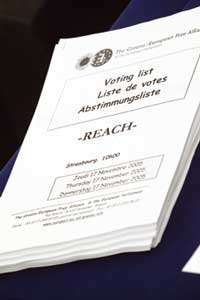
The German of the PSOE Maruja Sornosa noted that it is "highly positive" which has implemented the obligation to share data and that bureaucratic burdens have been reduced to benefit SMEs and maintain the competitiveness of the chemical industry of the EU. He also emphasized the promotion of non-animal tests and the increase of information to consumers.
"We intend to provide a high level of protection of human health and the environment, both for the present generation and for the next, and at the same time ensure a proper functioning of the internal market and the competitiveness of the chemical industry"", encouraging the development of safer substances", said Sornosa.
To guarantee the principle of "one substance, one registration", companies must share information
The Group of Liberals and Democrats (ALDE) pointed out that members of Parliament have succeeded in reducing the costs for the industry by cutting the required tests to test the safety of the substances. Despite this "99 percent of the chemicals that may pose a risk to health or the environment shall be identified and this is an important step forward".
The Greens voted against the compromise because they feel that it descafeína the Commission's original proposals and leaves out to 90 percent of the substances produced between 1 and 10 tonnes, which worsens existing legislation for new chemicals. Finally, and despite the criticisms of the text, the representatives of United Left voted overwhelmingly in favour to consider that "a weak Reach than a not Reach is better"



